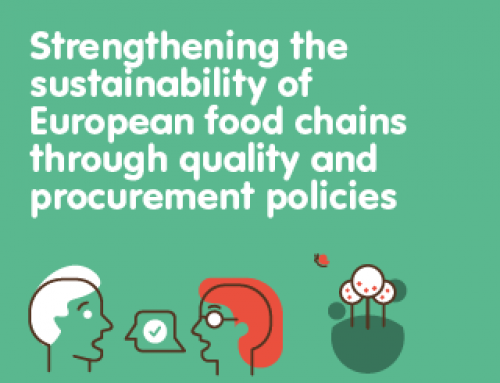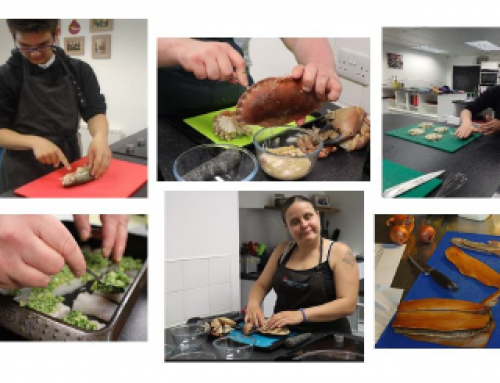Responsible Partner: INRA
Authors: V. Bellassen, G. Giraud, M. Hilal, F. Arfini, A. Barczak, A. Bodini, M. Brennan, M. Drut, M. Duboys de Labarre, M. Gorton, M. Hartmann, E. Majewski, S. Monier-Dilhan, P. Muller, T. Poméon, B. Tocco, A. Tregear, M. Veneziani, M-H. Vergote, G. Vitterso, P. Wavresky, A. Wilkinson
Date of Publication: October 2016
This report defines the methodological framework and core indicators which will be applied in the Strength2Food project for evaluating the sustainability of agri-food supply chains. In particular, it identifies a set of indicators for capturing the social, environmental and economic impact of FQS, SFSC and varying PSFP policies on agri-food chain participants and rural territories. These were obtained on the basis of literature review and the FAO’s Sustainability Assessment of Food and Agriculture systems (SAFA) indicators. This methodological handbook aims at facilitating the task for field studies, by proposing several prioritizations (indicator, variable, value chain level), detailing how relatively common variables will be combined (e.g., number of animals per hectare) into indicators (e.g., carbon footprint) and explaining how default values can be employed for the majority of the requested variables. Common methodologies and indicators will be applied across all case studies to aid cross-comparison. The rationale for a mixed methodology to study consumer confidence and practices based on a combination of survey, ethnographic and experimental work, as well as the action research approach for creating and evaluating the pilot initiatives, are also documented.






